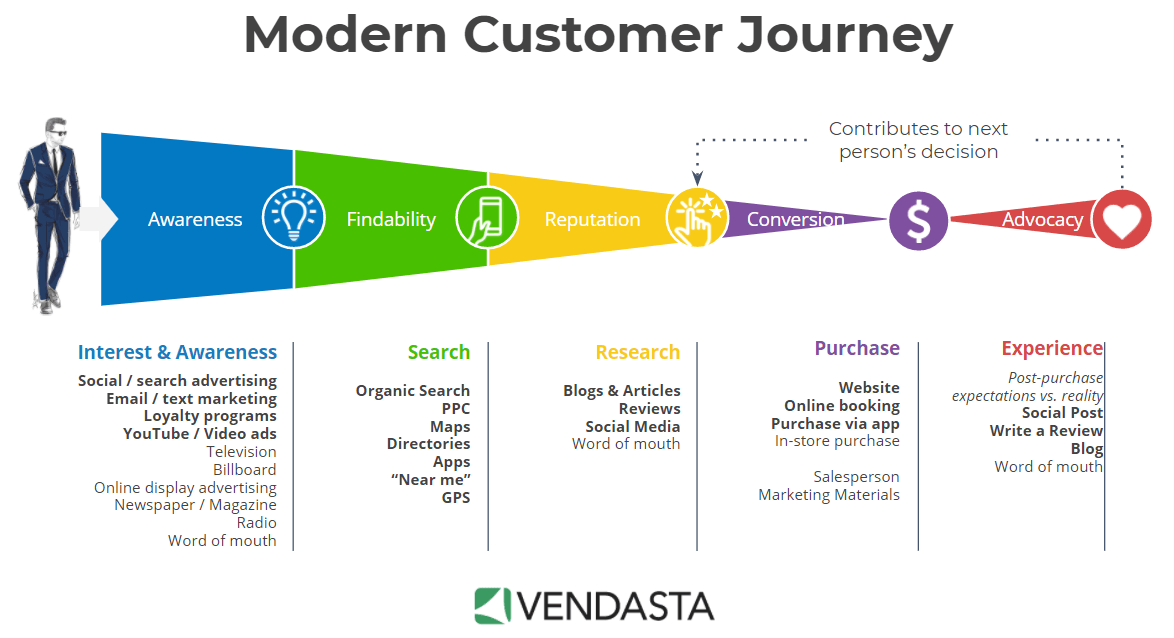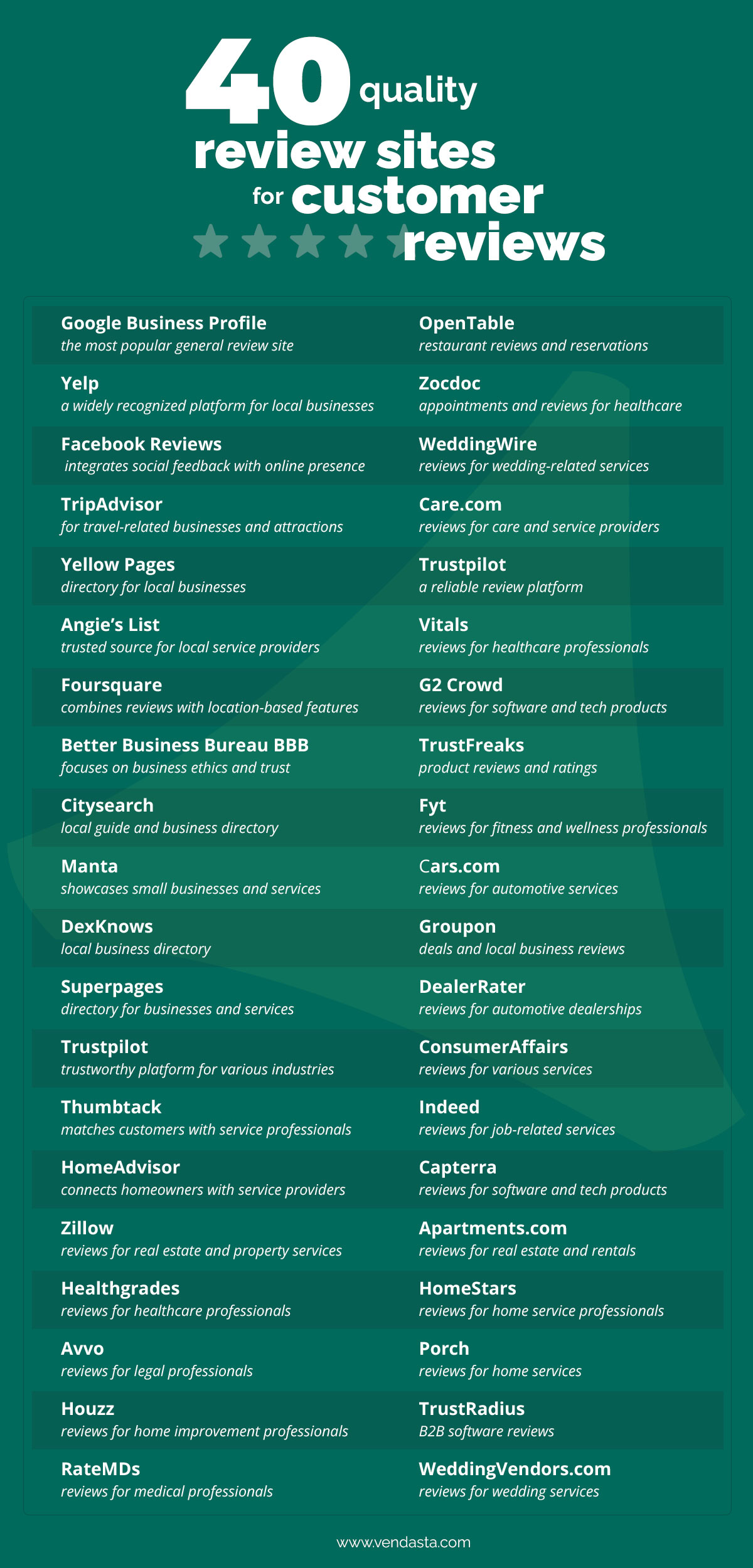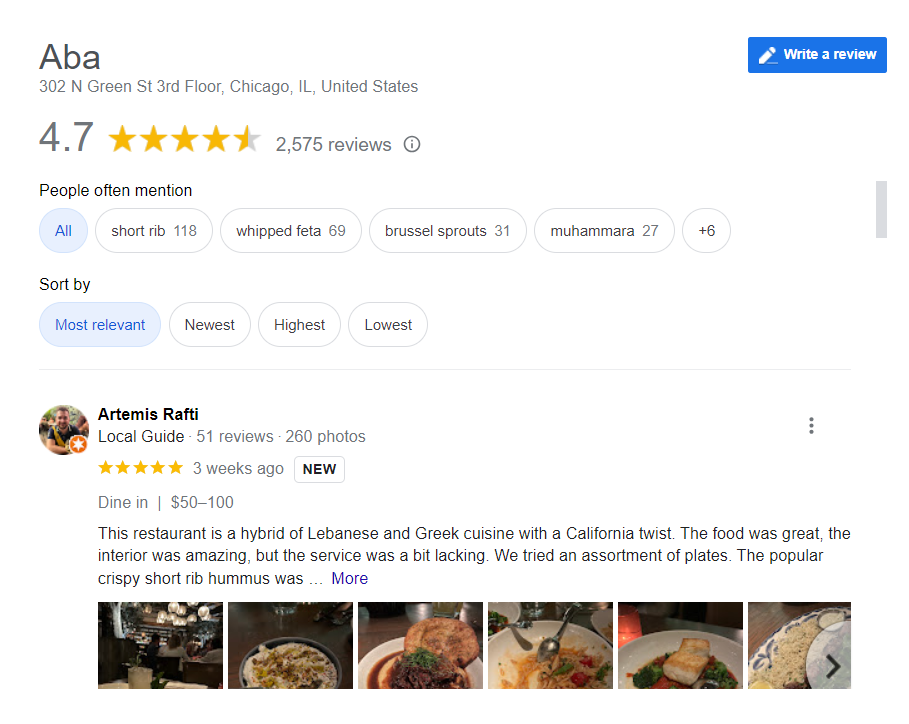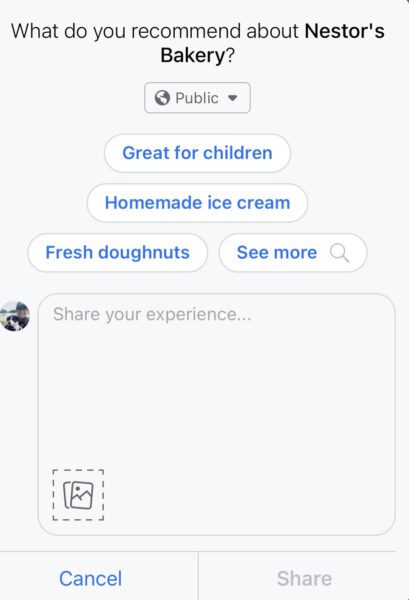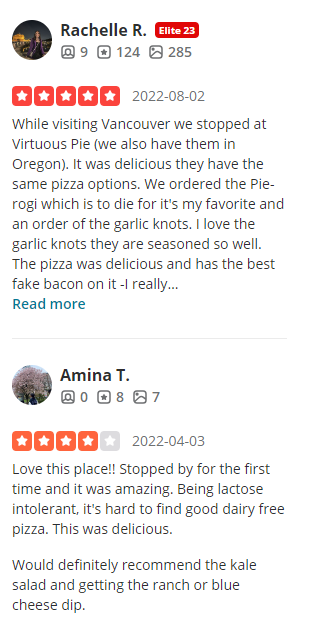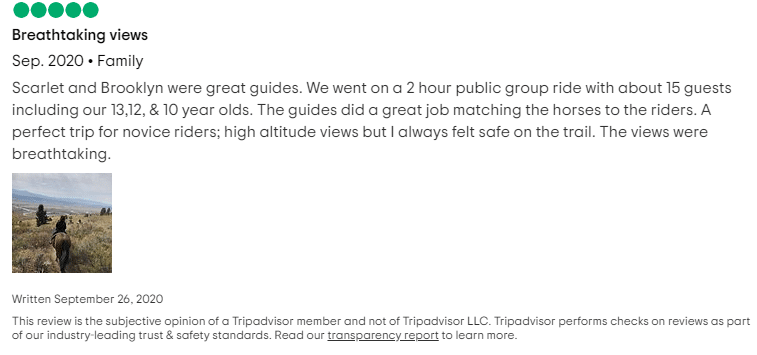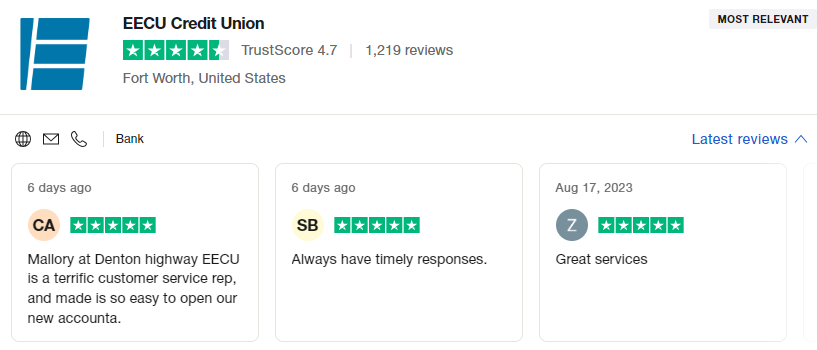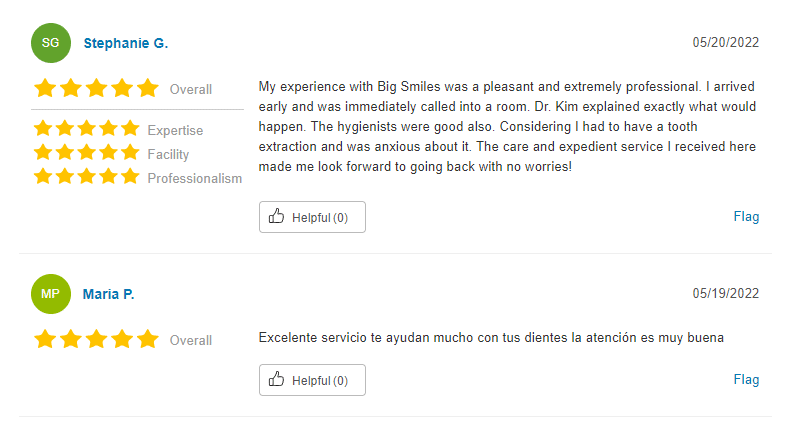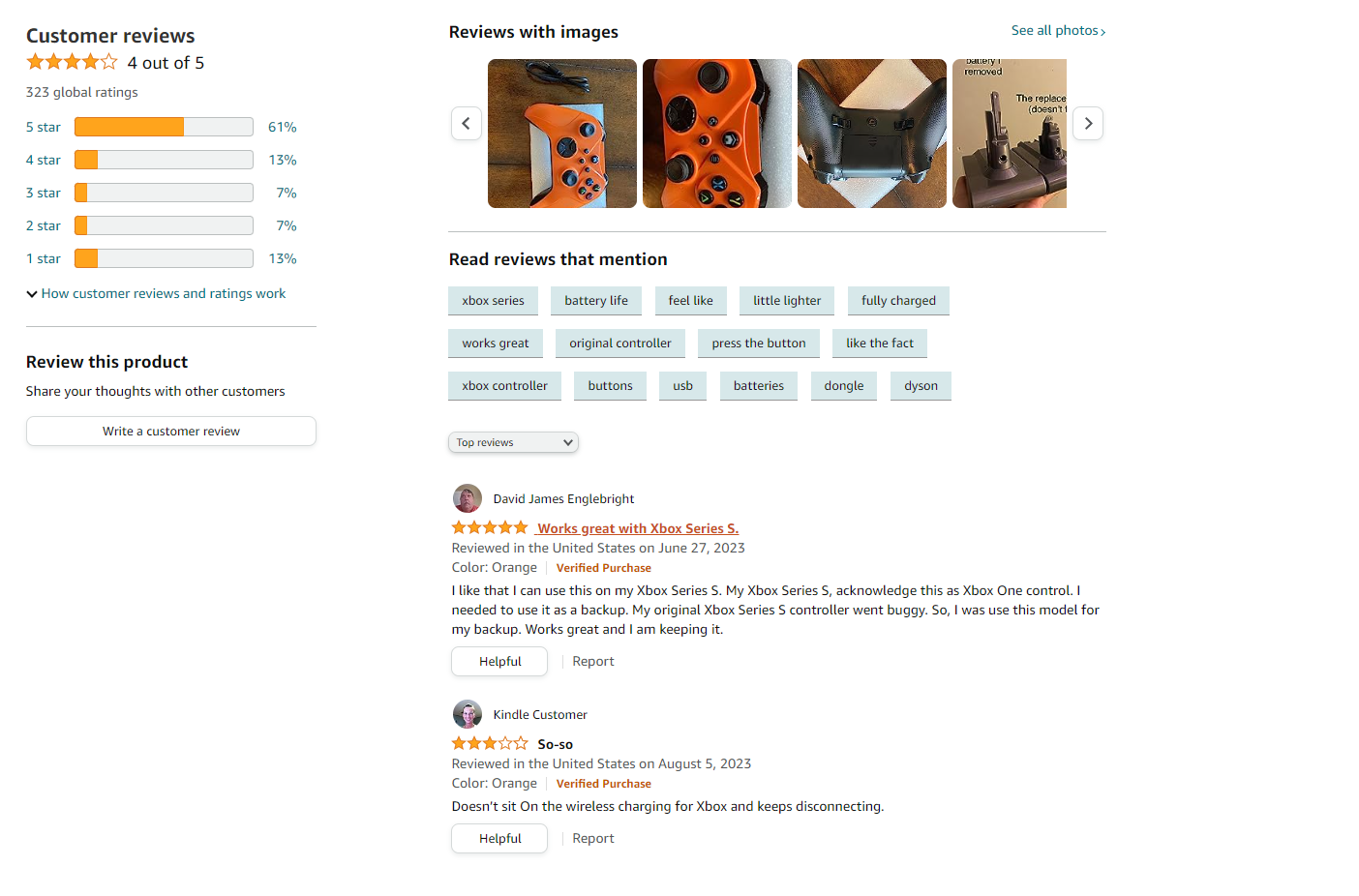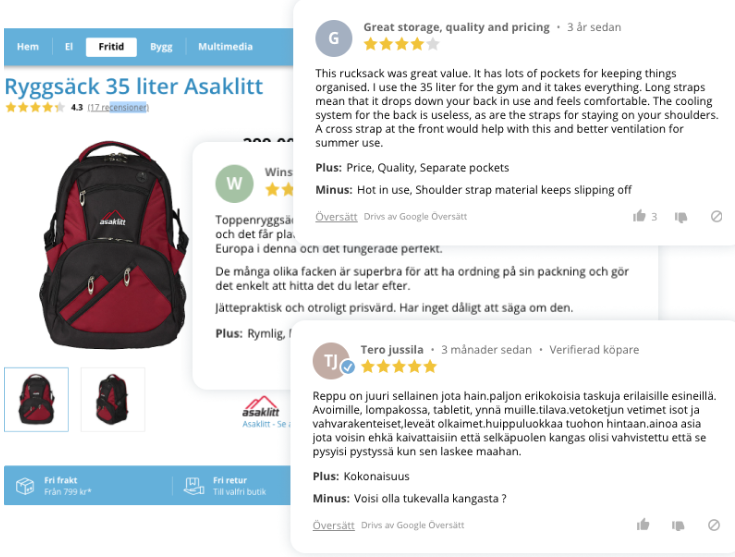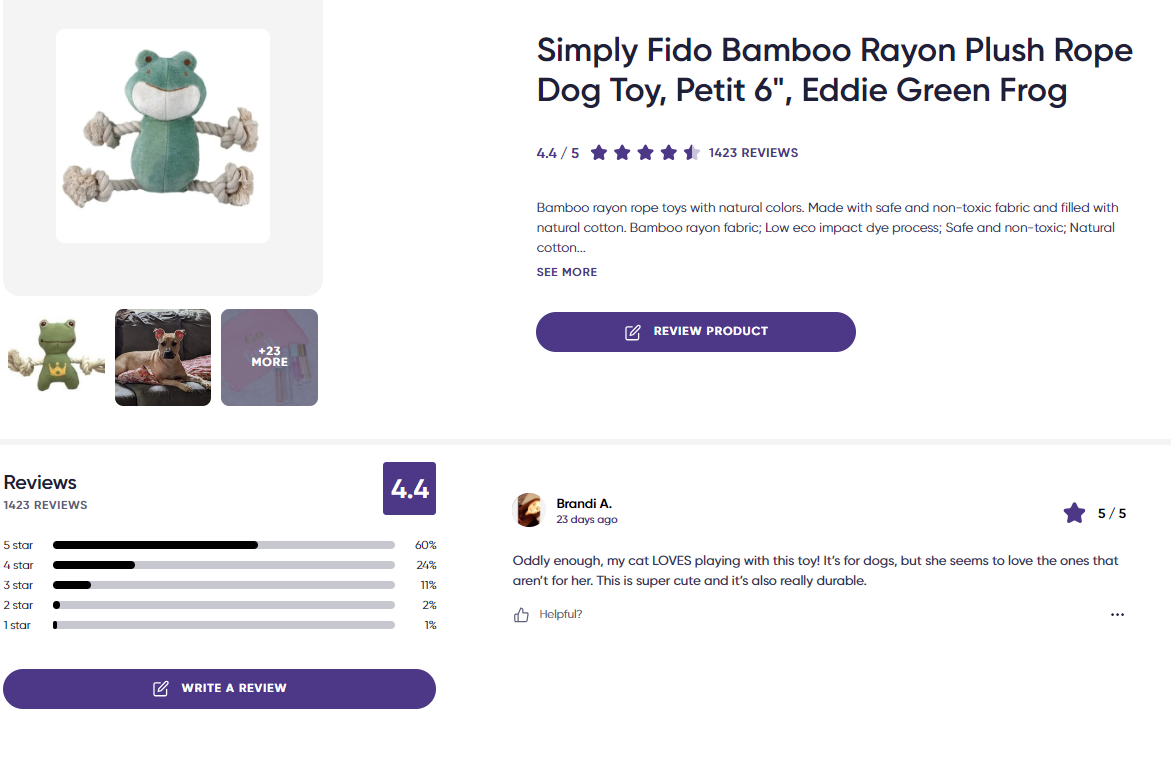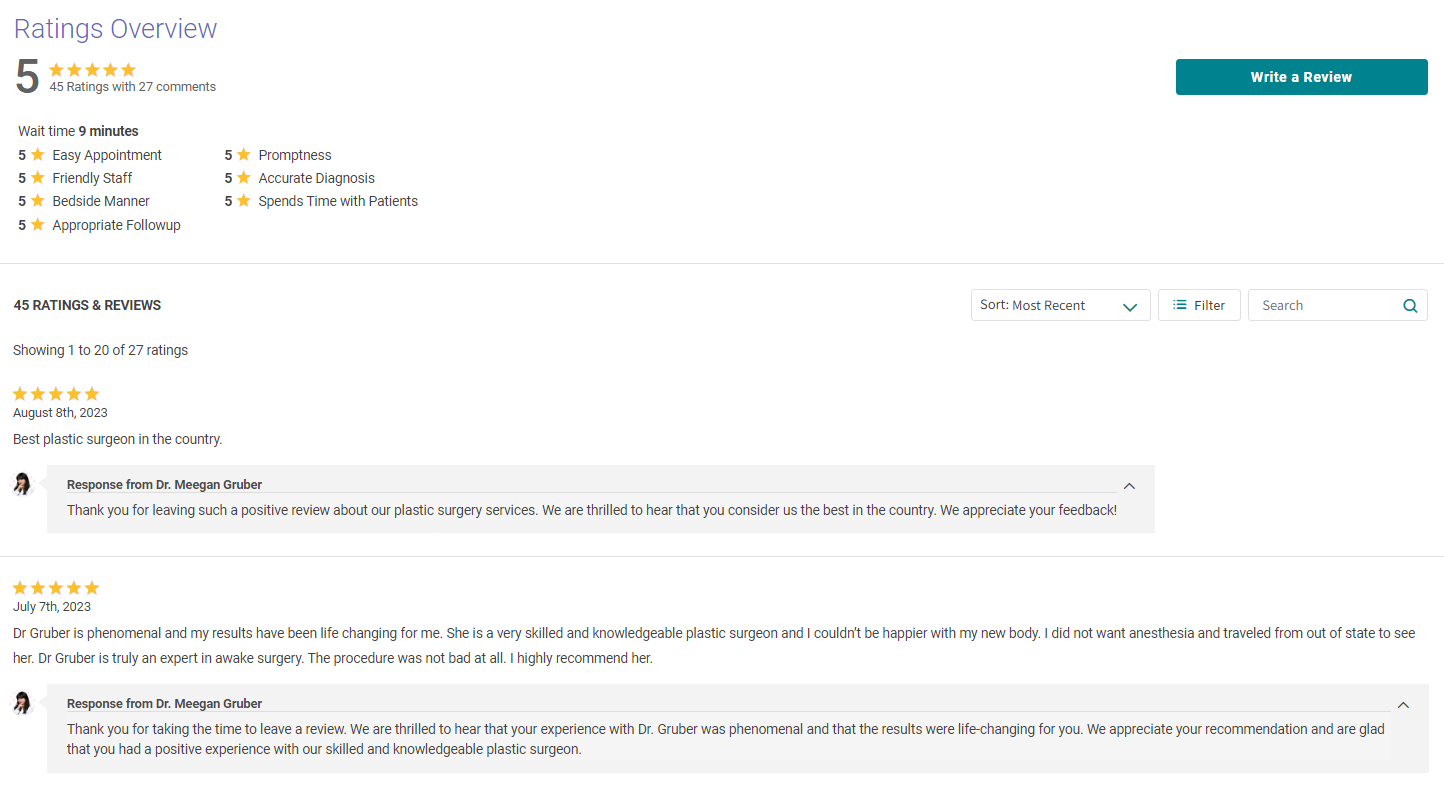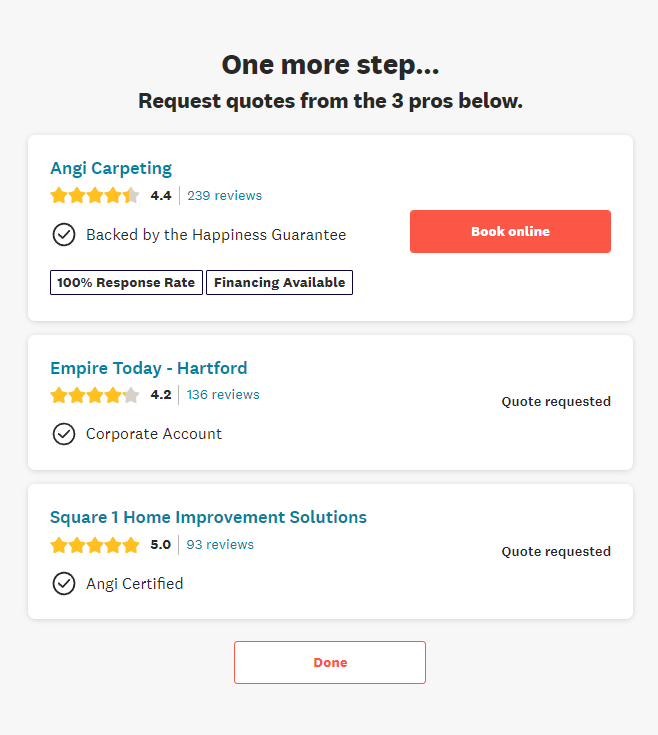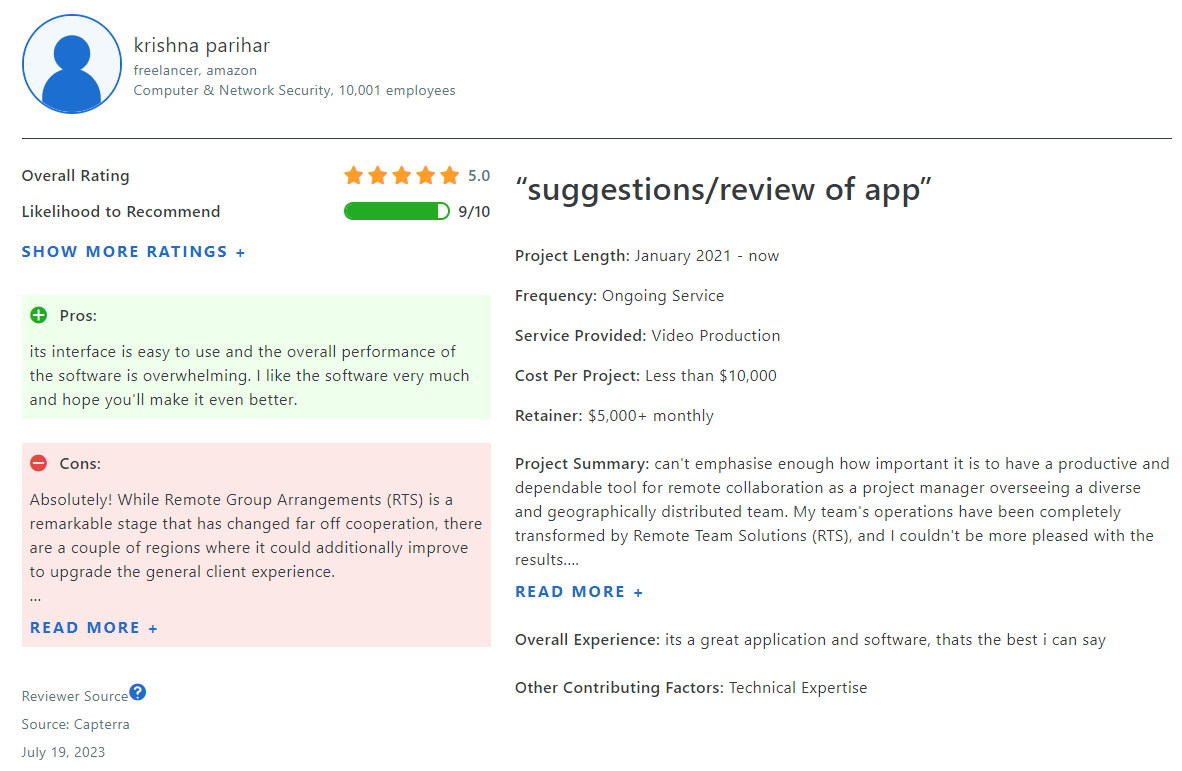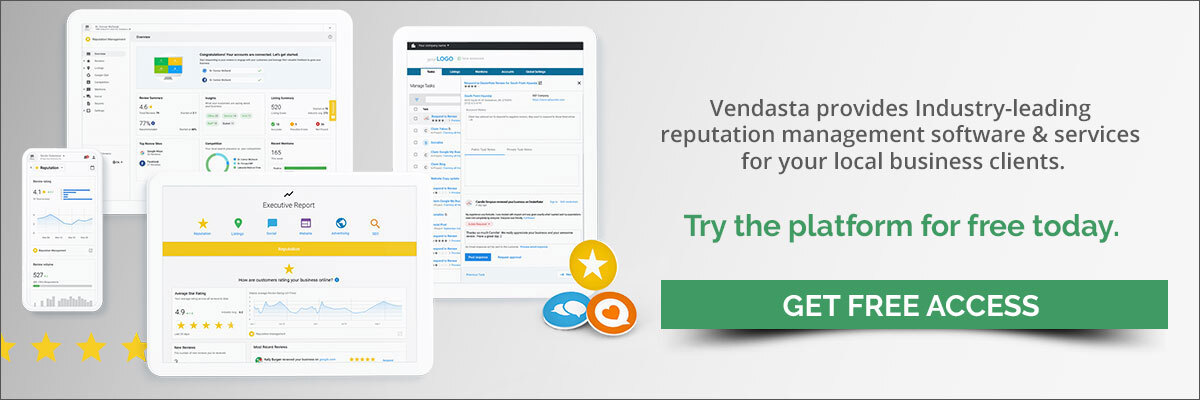40 Awesome Review Sites to Fuel Your Business Growth
With more entrepreneurs starting local businesses, online review websites like Google Business Profile, Angi, and Yelp have become crucial for visibility and success in the realm of commerce (Economic Innovation Group).
Download the white-label reputation management sales playbook today and get a rebrandable playbook to close more reputation deals.
Consumers lean heavily on review sites, considering the opinions expressed from other buyers about businesses within them before making purchasing decisions. The evidence is clear, both from data analysis and observing people around us: nearly all of us rely on review websites in various ways to inform our choices on where to shop, and what to buy (Search Engine Journal).
Table of Contents
- Why are customer review websites important in the buying journey?
- 3 advantages to adding business listings across multiple review sites
- 40 quality review sites for customer reviews
- 7 must-know business review websites
- Top 3 review websites for ecommerce businesses
- 3 industry-specific review websites
- Top 2 popular B2B customer review websites
- Conclusion
- Frequently asked questions
Why are customer review websites important?
No doubt agency owners understand the importance of local businesses having a strong online presence for success, but what’s changing is how reputation is increasingly influenced by various review sites on different platforms, not just Google. For instance, in 2022, Tripadvisor reached one billion reviews, and Yelp saw 26,830 new reviews generated per minute!
This lines up with our internal Vendasta data, showing that nearly two-thirds of local businesses guided by our agency partners have adopted our Listings Sync Pro tool to establish their presence across diverse review platforms – because relying on just one isn't enough anymore.
As a result, the new frontier in online reputation management is helping clients diversify their presence across review websites. This article delves into the top 40 platforms, offering guidance to your clients on amassing more reviews, refining their online presence in a targeted way, and enhancing their sales potential.
Where review sites fit in the modern customer journey
Review websites are instrumental and effectively underpin the ‘findability’ and ‘reputation’ phases of the modern customer journey, pictured below, for two key reasons:
- Increased visibility and search engine optimization (SEO) benefits: Online review websites often have high domain authority and appear in search engine results. When businesses have a strong presence on these platforms and receive positive reviews, it can improve their search engine rankings. This increased visibility can lead to more organic traffic and potential customers discovering or validating a local business.
- Social proof: Customer reviews provide social proof, which is a powerful psychological phenomenon that influences people's behavior. When potential customers see positive reviews from real people, it creates a sense of trust and credibility in the business. They are more likely to trust the opinions of other customers and feel confident in making a purchase.
3 advantages to adding business listings across multiple review sites
Listing across multiple websites brings significant advantages for both local businesses and the agencies that support them.
- Competitive edge: Establishing a presence on various customer review websites provides local businesses with an SEO edge. Maintaining precise information across multiple listings offers a simple method to enhance discoverability. Additionally, it empowers them to connect with customers seeking highly specific or detailed insights, surpassing the usual scope of Google reviews. This is particularly relevant in sectors such as healthcare and home services, where select review platforms enable users to provide feedback for individual professionals.
- Benefit for agencies: By helping local businesses manage their online reputation across multiple review websites, agencies can demonstrate their ability to effectively monitor and respond to customer feedback. This positions them as trusted advisors and valuable partners in maintaining a positive brand image. It also leaves a strong impression on business owners, showcasing the agency's awareness of the latest review site trends and choices, and allows you to justify the cost of your services and sales of reputation management and SEO products.
- Enhanced online reputation: A consistent stream of positive reviews across various platforms bolsters a business's credibility and reliability in the eyes of potential customers. This dynamic influence directly shapes purchasing choices, driving heightened customer engagement. Moreover, local businesses actively engaged on review sites gain the power to safeguard their reputation, effectively addressing negative feedback instead of letting it fester in the public realm. This is discussed further in the video below.
40 quality review sites for customer reviews
- Google Business Profile (formerly Google My Business) [the most popular general review site]
- Yelp (a widely recognized platform for local businesses)
- Facebook Reviews (integrates social feedback with online presence)
- TripAdvisor (for travel-related businesses and attractions)
- Yellow Pages (directory for local businesses)
- Angie's List (trusted source for local service providers)
- Foursquare (combines reviews with location-based features)
- Better Business Bureau (BBB) (focuses on business ethics and trust)
- Citysearch (local guide and business directory)
- Manta (showcases small businesses and services)
- DexKnows (local business directory)
- Superpages (directory for businesses and services)
- Trustpilot (trustworthy platform for various industries)
- Thumbtack (matches customers with service professionals)
- HomeAdvisor (connects homeowners with service providers)
- Zillow (reviews for real estate and property services)
- Healthgrades (reviews for healthcare professionals)
- Avvo (reviews for legal professionals)
- Houzz (reviews for home improvement professionals)
- RateMDs (reviews for medical professionals)
- OpenTable (restaurant reviews and reservations)
- Zocdoc (appointments and reviews for healthcare)
- WeddingWire (reviews for wedding-related services)
- Care.com (reviews for care and service providers)
- Trustpilot (a reliable review platform)
- Vitals (reviews for healthcare professionals)
- G2 Crowd (reviews for software and tech products)
- TestFreaks (product reviews and ratings)
- Fyt (reviews for fitness and wellness professionals)
- Cars.com (reviews for automotive services)
- Groupon (deals and local business reviews)
- DealerRater (reviews for automotive dealerships)
- ConsumerAffairs (reviews for various services)
- Indeed (reviews for job-related services)
- Capterra (reviews for software and tech products)
- Apartments.com (reviews for real estate and rentals)
- HomeStars (reviews for home service professionals)
- Porch (reviews for home services)
- TrustRadius (B2B software reviews)
- WeddingVendors.com (reviews for wedding services)
Navigating the vast landscape of review sites can be daunting for both agencies and local businesses. Which platforms deserve a business owner's attention for establishing a presence and soliciting reviews? What sets these platforms apart? Who comprises their user base?
While a comprehensive presence on every site isn't required, gaining insight into the major players as well as some specialized and emerging players is valuable knowledge you can take to a business owner.
7 must-know business review websites
1. Google Business Profile (formerly Google My Business)
A widely recognized platform for customer feedback, Google holds immense value for businesses seeking to bolster their online reputation. Its seamless integration with Google Maps search results, and other technologies, lends it a pivotal role for every local business.
Use cases: Google Reviews provides a user-friendly channel for customers to contribute reviews directly to a business's Google listing. Positive reviews not only attract potential customers but also enhance local search visibility, resulting in increased online traffic.
Monthly U.S. traffic: Approximately 17 billion (source: Semrush)
Alt text/caption: The Google Reviews page of restaurant Aba in Chicago
Pros:
- High visibility: Benefits from Google's search dominance and high user adoption, ensuring high visibility amongst customers.
- Business insights: The platform provides data and insights into how users are interacting with your listing
- Easy Google integration: Easily manageable through a Google business account and applications that integrate with Google.
Cons:
- Anonymity: Reviewers can be anonymous and use fake names, leading to potential spam and lack of accountability, and removing a fake or malicious Google review can be challenging.
- Lack of customer support: Since reviews can't be turned off or deleted manually, profile owners must reach out to Google directly to dispute a review, which can take time to resolve.
- Nongranular information: Google Reviews often provide a broad 1-5 star rating. However, for specific establishments like restaurants, this simplicity may not facilitate the evaluation of intricate elements like food quality, service, ambiance, and location.
Businesses/industries: Well-suited for all local businesses, especially for those like restaurants competing for foot traffic. (Key tip: Ensure that your local business customers update their Google Business hours)
2. Facebook Recommendations
Facebook is one of the world’s pre-eminent platforms for interactive customer experiences. Like Google, Facebook houses a local business’s essential details including number, location, and website.
How it’s different from Google is that users are allowed to “Recommend” or “Not recommend” a business, and are then prompted to leave feedback and images about their experience, and are given the option to select tags such as “Slow service”, “No Wi-Fi” and “Fresh doughnuts.”
Use cases: Showcase customer service, engage customers on the business's Facebook page.
Global monthly active users: Approximately 3 billion (Source: Facebook).
Alt text/caption: Facebook prompts allow users to include tags such as “great for children” and “fresh doughnuts” that make it easy for consumers to easily see what others like about the business
Pros:
- Social engagement: Facilitates direct interactions and personalized responses.
- Broad reach: Connects with a wide audience through social networking.
Cons:
- Limited discoverability: Reviews may not be as prominently featured as on dedicated platforms.
Businesses/industries: Suitable for retail, restaurants, entertainment venues, and local services.
3. Yelp
An established review site renowned for in-depth user-generated feedback, Yelp is essential for building credibility.
Use cases: Engage with customers, respond to feedback, demonstrate commitment to customer satisfaction.
Monthly U.S. traffic: Approximately 117 million (Source: Semrush)
Alt text/caption: Yelp reviews are structured similarly to Google, but the review site is tailored largely to restaurants
Pros:
- Improved SEO: Yelp Check-In allows users to share details of their visit and experience at a business, which can positively impact visibility and search rankings.
- Detailed reviews: Extensive user-generated reviews provide valuable insights.
- Community impact: Active user base fosters community credibility.
Cons:
- Review filter: Stringent filter can impact visibility based on criteria.
Businesses/industries: Ideal for restaurants, salons, professional services, and businesses aiming to establish a strong online reputation.
4. TripAdvisor
A travel-focused platform, TripAdvisor plays a pivotal role for businesses in the travel and hospitality industry.
Use cases: Businesses in the travel sector can benefit from showcasing customer experiences and attracting travelers.
Monthly global traffic: Approximately 150 million (Source: Semrush)
Alt text/caption: TripAdvisor differentiates itself from other review websites with its travel focus. In this example, a visitor planning a trip to Wyoming has searched for “Top things to do in Wyoming” and then found the top-rated travel experiences.
Pros:
- Travel focus: Centrally focused on travel and hospitality, catering to a specific industry.
- Attracting travelers: Positive reviews can attract travelers to accommodations, restaurants, and attractions.
- Complements local search: In certain scenarios, Tripadvisor gains an advantage over Google by assisting international visitors to the U.S. (or other countries) in pre-planning their experiences. This approach proves beneficial as it allows travelers to strategize ahead, avoiding the intensified competition for local visibility upon arrival.
Cons:
- Travel niche: Primarily suitable for travel and hospitality businesses.
- Businesses/industries: Especially beneficial for hotels, restaurants, attractions, and tour operators within the travel sector.
5. Better Business Bureau (BBB)
BBB focuses on business ethics and trust, providing consumers with information about a business's reputation.
Use Cases: BBB accreditation and positive reviews enhance business credibility and trustworthiness.
Monthly U.S. traffic: Approximately 12.5 million (source: Semrush)
Alt text/caption: A review for John The Plumber on BBB for a plumber
Pros:
- Ethical reputation: Focus on business ethics and trust.
- Accreditation impact: BBB accreditation can boost business reputation.
Cons:
- North America: Limited to businesses mainly in North America.
- Businesses/industries: Suitable for businesses aiming to establish an ethical reputation and trustworthy standing.
6. Trustpilot
Trustpilot is a widely recognized platform that emphasizes consumer reviews and building brand trust.
Use Cases: Trustpilot is ideal for businesses that prioritize consumer feedback and seek to establish a transparent reputation.
Global & monthly U.S. traffic: Approximately 83 million and 17 million, respectively (Source: Semrush)
Alt text/caption: Trustpilot let’s users easily filter the services they’re looking for in their local area, such as credit unions, and then find reviews of those institutions
Pros:
- Consumer trust: Focuses on building consumer trust through verified reviews.
- Wide range of industries: Suitable for a variety of businesses and industries.
- Robust presence in Europe and the U.S.: Businesses seeking transatlantic growth opportunities can benefit from the platform's substantial foothold in both European and U.S. markets.
Cons:
- Paid plans: Some features require subscription in paid plans.
- Businesses/industries: Suitable for e-commerce, service-based, and retail businesses looking to build consumer trust.
7. Yellow Pages
Yellow Pages offers an online directory of businesses, serving as a trusted resource for local businesses and services.
Use cases: Local businesses can gain visibility and credibility through positive reviews on Yellow Pages.
Monthly U.S. traffic: Approximately 12 million (Source: Semrush)
Alt text/caption: Screenshot of reviews for a dentist in Chicago
Pros:
- Local directory: Provides a platform for local businesses to reach their target audience.
- Trustworthy source: A trusted resource for finding local services.
- Lead generation: Yellow Pages allows consumers searching for services to contact the business through functions like chat messages.
Cons:
- Diverse reviews: Reviews can cover a wide range of industries.
- Businesses/industries: Suitable for local businesses across various sectors aiming to enhance their online presence.
Top 3 review websites for ecommerce businesses
1. Amazon Customer Reviews
Amazon Customer Reviews significantly impact purchase decisions on one of the world's largest e-commerce platforms.
Use cases: Businesses selling products on Amazon can benefit from positive customer reviews, enhancing product credibility and visibility.
Monthly active users: Over 300 million (Source: Amazon)
Alt text/caption: Amazon’s reviews, in this case of a Microsoft controller, capture keywords and encourage reviewers to provide photos
Pros:
- E-commerce impact: Reviews influence buying decisions on a global e-commerce giant.
- Product visibility: Positive reviews increase product visibility and credibility, especially if they achieve the ‘Amazon’s Choice’ designation.
Cons:
- Product-focused: Reviews tend to be product-centric.
- Businesses/industries: Perfect for e-commerce businesses selling products on Amazon's platform.
2. TestFreaks
TestFreaks provides comprehensive reviews of various products, aiding consumers in making informed purchase decisions.
Use Cases: Businesses selling products can benefit from positive reviews on TestFreaks to enhance product credibility and visibility. It’s especially popular in Europe.
Number of reviews published: Over 100 million (Source: TestFreaks)
Alt text/caption: A retail company’s integration of TestFreaks’ user-generated content system for its ecommerce store and products
Pros:
- Product reviews: Offers in-depth reviews on a wide range of products.
- Consumer insight: Helps buyers make informed decisions based on real user experiences.
Cons:
- Product-centric: Focuses mainly on product reviews.
- Businesses/industries: Suitable for businesses in the e-commerce sector seeking to improve their product reputation.
3. Influenster
Influenster is an emerging platform that sends curated boxes of products to its members for free in exchange for leaving a review.
Use Cases: Influenster presents a valuable option for local businesses aiming to establish their presence or enhance the reputation of new products. It serves as an effective platform to connect with customers and foster reviews.
Members (users who leave reviews): Over 7 million (Source: Influnster)
Alt text/caption: A review page of a dog toy received by members on Influenster
Pros:
- Cut-through review generation: Influenster operates on a model where customers receive complimentary products in exchange for reviews. This is advantageous for businesses who may struggle to compete on websites like Amazon, where certain categories are saturated and difficult to establish visibility in.
- Leveraged by prominent brands: Influenster is used by major brands like Dove, Neutrogena, Hasbro, and Doritos, showcasing its industry recognition and trustworthiness.
Cons:
- Expense: Providing items for free might pose a cost challenge for local businesses.
3 industry-specific review websites
1. Vitals
Vitals is a dedicated platform for healthcare professionals, enabling medical practitioners to showcase their expertise and services.
Use cases: Agencies who are established or seeking to grow in the medical field can leverage Vitals to display their customers’ qualifications and connect with patients seeking medical services.
Number of reviews published by patients: Over 10 million (Source: Vitals)
Alt text/caption: Patient reviews of a plastic surgeon based in New York. You can see granular details including wait times and components of the rating, such as bedside manner
Pros:
- Expanding geographic reach: Traditionally, individuals sought local family doctors or specialists, confining choices to in-person visits. Vitals transforms this norm, empowering consumers to explore practitioners locally or afar, even fostering virtual consultations. This amplifies opportunities for highly-rated professionals to attract a broader patient base, diverging from those with lower ratings.
- Detailed insights: Vitals encourages practitioners to provide comprehensive details, encompassing years of experience, areas of specialization, and certifications. This fosters trust-building as consumers gain insights into practitioners' qualifications.
- Granular reviews: The website prompts patients to rate various facets of their healthcare journey from 1-5 stars, spanning staff friendliness, bedside manner, and timeliness. This prompts meaningful patient connections by aligning practitioners with the aspects most important to their needs.
- Video content: Agencies can leverage video content within their client’s Vitals listing to foster a personable connection to prospects browsing reviews. See example here.
Cons:
- Specialized: Primarily beneficial for healthcare professionals.
- Businesses/industries: Suitable for doctors, dentists, therapists, and healthcare providers aiming to attract patients.
2. Fyt Personal Training
Fyt Personal Training is an emerging review site that focuses on connecting users with certified fitness trainers, making it a valuable resource for fitness and wellness professionals.
Use Cases: Generating new leads is often the biggest challenge for fitness trainers, particularly for those who focus on outdoor exercise or want to get into virtual consultations. Fyt allows consumers to fill in a quiz to determine their health goals, and then find a suitable trainer, with reviews being a central part of the process.
Number of reviews published by clients: Over 700 (Source: Fyt)
Caption/alt text: Reviews of personal trainers on the Fyt website
Pros:
- Fitness network: Potentially helps fitness trainers generate high-quality leads while saving time from having to do extensive, free consultations to determine clients’ needs.
- Certified professionals: Highlights certified trainers for quality assurance.
Cons:
- Fitness industry: Relevant primarily for fitness and wellness professionals.
- Businesses/industries: Beneficial for certified fitness trainers, wellness coaches, and professionals within the fitness industry.
3. Angi’s
Angi’s a platform that specializes in local service providers, offering a trustworthy resource for home and service-related needs.
Use cases: Businesses in the home improvement and service sectors can benefit from positive reviews on Angi’s.
Monthly U.S. traffic: Approximately 9.1 million (Source: Semrush)
Caption/Alt text: A potential customer looks for a quote for a carpeting job and is presented with options for local businesses including their ratings
Pros:
- Service focus: Specializes in home and local service providers.
- Trusted source: Offers consumers a reliable resource for finding trustworthy service professionals.
Cons:
- Membership fee: Requires consumers to pay for membership to access reviews.
- Businesses/industries: Ideal for home improvement, contractors, and service providers looking to connect with local customers.
Top 2 popular B2B customer review websites
1. G2 Crowd
G2 Crowd is a leading B2B software review platform that offers authentic user reviews and insights for various software products and services. It serves as a valuable resource for businesses seeking software solutions.
Use Cases: G2 Crowd is widely used by businesses to research and compare software options. It provides comprehensive reviews, ratings, and comparisons to help companies make informed decisions about their technology stack.
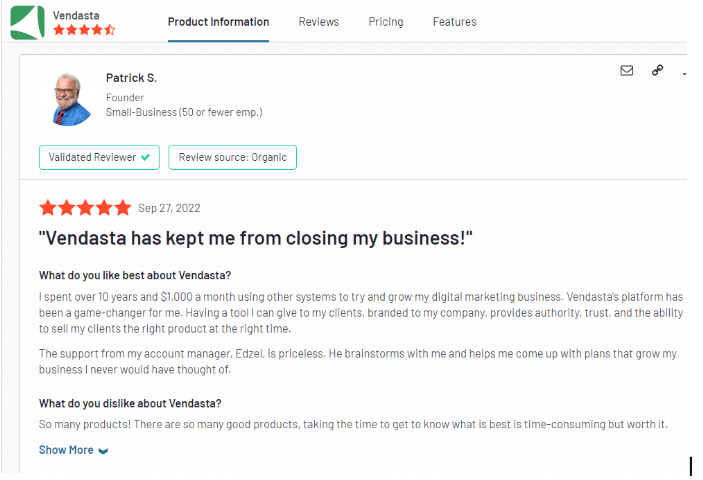
Alt text: A review of Vendasta by a customer on G2
Pros:
- Authentic reviews: G2 Crowd's reviews come from verified users, ensuring credibility.
- Detailed comparisons: Allows users to compare software features, pricing, and user experiences.
- Market trends: Provides insights into software trends and user satisfaction.
Cons:
- Focused on B2B Software: Limited to software and technology reviews.
Businesses/industries: Ideal for agencies, businesses, and organizations seeking software solutions for various functions, from marketing to project management.
2. Capterra
Capterra is another well-known B2B software review platform that assists businesses in finding the right software solutions. It offers a wide range of user-generated reviews and comparisons.
Use Cases: Capterra is a go-to platform for businesses looking to discover, compare, and select software solutions that align with their needs and objectives.
Alt text/caption: A review of an accounting firm on Capterra, which captures specific details about user experiences including cost and contributing factors to the rating
Pros:
- Diverse software categories: Offers reviews for a wide array of software categories.
- User-generated content: Empowers users to share genuine feedback and experiences.
- Easy comparisons: Allows side-by-side comparisons of software features and pricing.
Cons:
- Software-focused: Primarily suitable for software reviews and comparisons.
Businesses/industries: Valuable for agencies, businesses, and professionals seeking software solutions for specific operational needs, ranging from accounting to customer relationship management.
Conclusion
In today's digital era, online reviews wield an unprecedented level of influence when it comes to shaping the reputation of businesses. However, it's crucial to understand that the strategy for managing online reputation cannot begin and end at Google alone.
There's clear evidence indicating the proliferation of review websites and a growing preference among customers for platforms that provide specific information tailored to their interests and needs.
From well-known platforms like Google to specialized ones such as Vitals, there exists a diverse array of options to cater to various industries and objectives. By navigating these platforms strategically, agencies can help local businesses harness the potential to elevate their online presence, increase customer engagement, and fuel their growth.
Frequently asked questions
In a world where online reviews can hold significant sway over consumer decisions, it's natural to wonder about their reliability and how businesses can navigate this landscape. Addressing common questions about review site trustworthiness and strategies for obtaining reviews sheds light on a topic often clouded by skepticism.
Are review sites trustworthy?
Review site trustworthiness can vary. While many sites have genuine reviews, there's also the potential for manipulated or fake feedback. It's essential to consider the site's credibility, the range of reviews, and consistency in assessing businesses. Review sites have also taken great steps around improving transparency of ratings calculations and introducing processes to take down suspected fake reviews.
How can businesses get more online reviews?
Businesses can encourage reviews by providing excellent service, asking satisfied customers to leave feedback, and making it easy for customers to share their experiences. The below video walks through strategies that you can leverage to help local business customers get more reviews.


